
Colombo: The Vibrant Heart of Sri Lanka
Welcome to Colombo, the bustling capital of Sri Lanka. This city effortlessly blends the old with the new, creating a unique atmosphere that is sure to captivate any visitor. From its ancient temples and colonial architecture to its modern skyscrapers and bustling markets, Colombo has something for everyone. Stroll through the historic Fort area and marvel at the old Dutch Hospital, now a trendy shopping and dining precinct. Visit the Gangaramaya Temple, a spiritual haven in the heart of the city. For a glimpse into the country's history, the National Museum offers an in-depth look at Sri Lanka's rich cultural heritage. Colombo's culinary scene is a feast for the senses. From street food vendors offering spicy kottu roti to upscale restaurants serving fresh seafood, there's no shortage of delicious options. Don't miss a sunset stroll along Galle Face Green, where you can enjoy local snacks and watch kite-flyers in action. Shopping enthusiasts will find paradise in Pettah Market, a maze of stalls selling everything from textiles to electronics. For a more relaxed shopping experience, head to one of the city's modern malls. Nightlife in Colombo is vibrant, with a range of bars, clubs, and live music venues to keep you entertained. Whether you're a history buff, a foodie, or just looking to relax by the Indian Ocean, Colombo offers a diverse range of experiences that will make your trip unforgettable.
Local tips in Colombo
- Visit early in the morning or late in the afternoon to avoid the midday heat.
- Use tuk-tuks for short distances, but always negotiate the fare before starting the ride.
- Dress modestly when visiting temples and religious sites.
- Try local street food, but make sure it's from a busy and clean stall.
- Stay hydrated and carry bottled water, especially when exploring outdoor attractions.
- Keep small change handy for tipping and minor purchases.
- Download an offline map to navigate the city more easily.
Neighbourhoods in Colombo
Colombo: The Vibrant Heart of Sri Lanka
Welcome to Colombo, the bustling capital of Sri Lanka. This city effortlessly blends the old with the new, creating a unique atmosphere that is sure to captivate any visitor. From its ancient temples and colonial architecture to its modern skyscrapers and bustling markets, Colombo has something for everyone. Stroll through the historic Fort area and marvel at the old Dutch Hospital, now a trendy shopping and dining precinct. Visit the Gangaramaya Temple, a spiritual haven in the heart of the city. For a glimpse into the country's history, the National Museum offers an in-depth look at Sri Lanka's rich cultural heritage. Colombo's culinary scene is a feast for the senses. From street food vendors offering spicy kottu roti to upscale restaurants serving fresh seafood, there's no shortage of delicious options. Don't miss a sunset stroll along Galle Face Green, where you can enjoy local snacks and watch kite-flyers in action. Shopping enthusiasts will find paradise in Pettah Market, a maze of stalls selling everything from textiles to electronics. For a more relaxed shopping experience, head to one of the city's modern malls. Nightlife in Colombo is vibrant, with a range of bars, clubs, and live music venues to keep you entertained. Whether you're a history buff, a foodie, or just looking to relax by the Indian Ocean, Colombo offers a diverse range of experiences that will make your trip unforgettable.
When is the best time to go to Colombo?
Iconic landmarks you can’t miss
Floating Market - Pettah
Discover the vibrant Floating Market in Pettah, Colombo, where local culture and delicious street food come together in a colorful shopping experience.
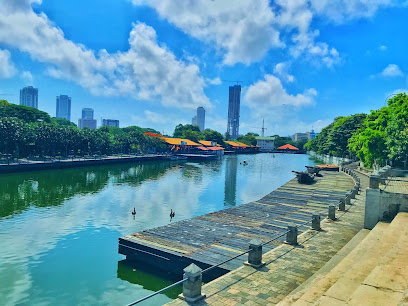
Pettah Floating Market
Explore the Pettah Floating Market in Colombo for a unique shopping experience filled with local culture, colorful stalls, and delightful street food.
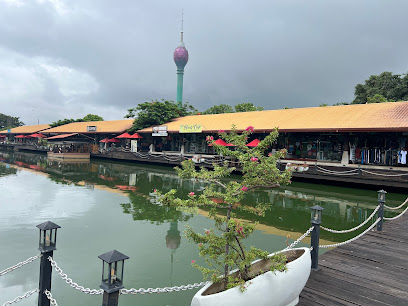
Galle Face Green
Experience the vibrant culture and stunning ocean views at Galle Face Green, Colombo's premier urban park for relaxation and outdoor fun.
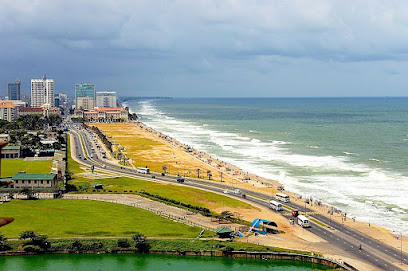
Viharamahadevi Park
Discover the beauty of nature at Viharamahadevi Park, a serene state park in Colombo, perfect for relaxation, recreation, and family fun.
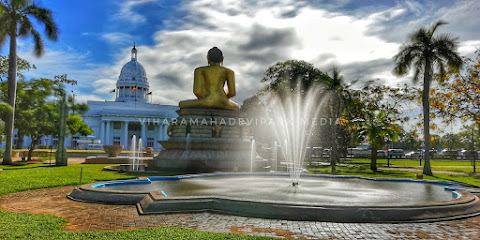
Gangaramaya Temple
Discover tranquility and cultural richness at Gangaramaya Temple, a stunning Buddhist sanctuary in the heart of Colombo, Sri Lanka.
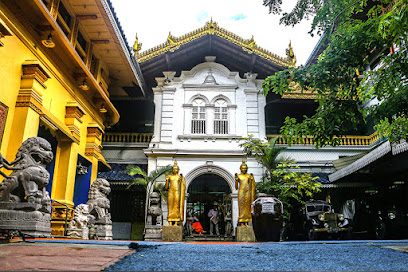
Independence Square
Explore Independence Square, a historical landmark in Colombo, where heritage meets tranquility amidst lush gardens and rich cultural narratives.
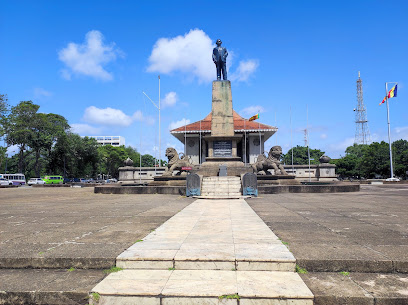
Dutch Hospital - Shopping Precinct
Explore the vibrant Dutch Hospital - Shopping Precinct in Colombo, where history meets modern shopping and dining in a beautifully restored colonial setting.
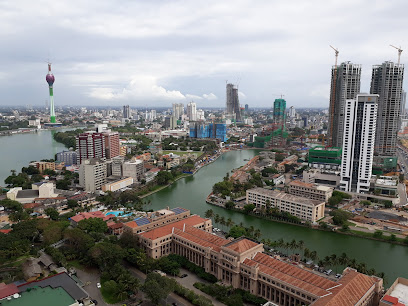
Colombo Lotus Tower
Discover the stunning Colombo Lotus Tower, a cultural landmark offering breathtaking panoramic views and a taste of Sri Lankan heritage.
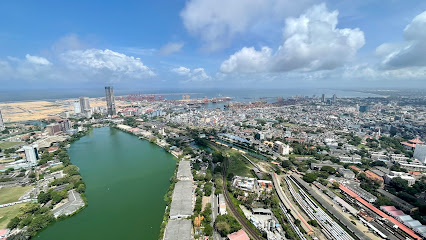
Colombo National Museum
Explore the Colombo National Museum, where Sri Lanka's history and culture come alive through an incredible collection of artifacts and exhibits.
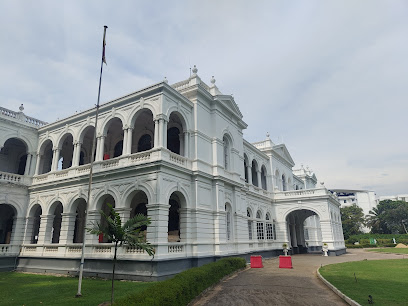
Jami Ul-Alfar Mosque
Explore the vibrant Jami Ul-Alfar Mosque in Colombo, where stunning architecture meets rich cultural heritage, offering a unique experience for every traveler.
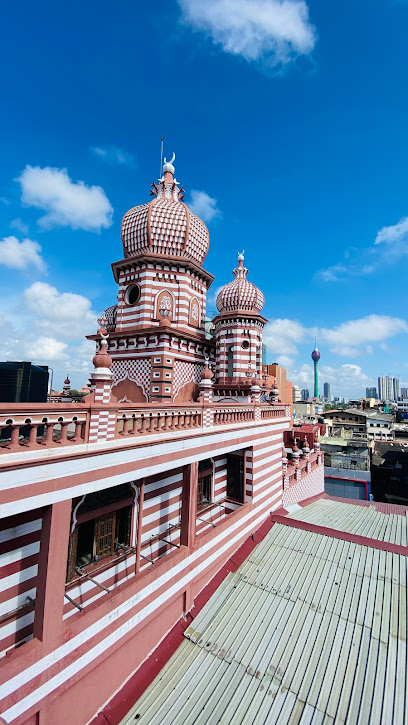
Mount Lavinia Beach
Experience the beauty and vibrancy of Mount Lavinia Beach, a top destination for sun-soaked relaxation and local culture in Sri Lanka.
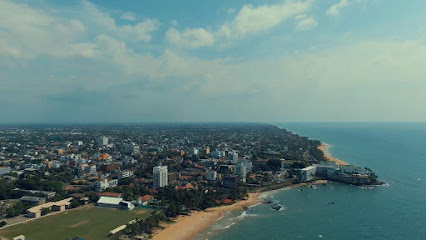
Crow Island Beach Park
Experience the tranquility of Crow Island Beach Park, a lush urban oasis in Colombo, perfect for relaxation, recreation, and family fun.
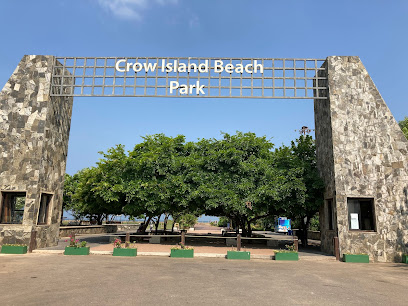
Gangarama Sima Malaka
Explore the tranquil beauty and cultural richness of Gangarama Sima Malaka, a must-see Buddhist temple in the heart of Colombo.
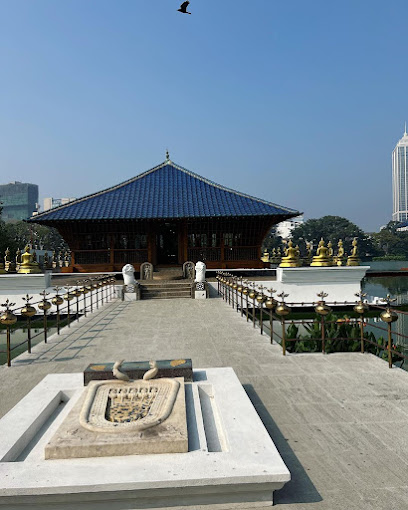
Attidiya Bird Sanctuary
Explore the Attidiya Bird Sanctuary, a serene wildlife refuge in Boralesgamuwa, where nature and birdwatching come together for an unforgettable experience.
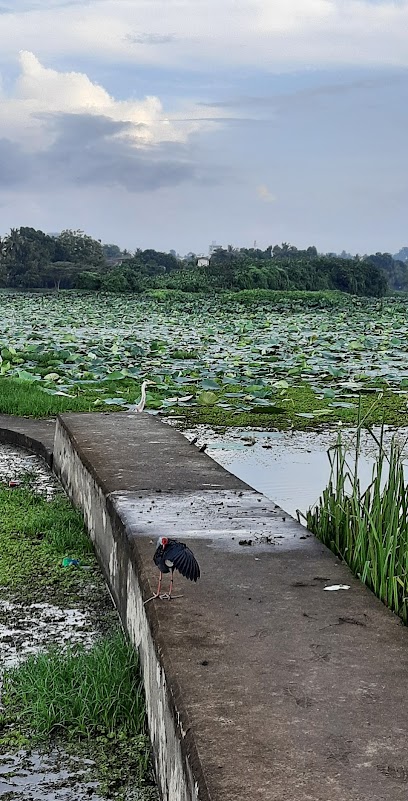
Colombo Galbokka Lighthouse
Discover the captivating history and stunning views at Colombo Galbokka Lighthouse, a must-visit landmark for every traveler in Sri Lanka.

Unmissable attractions to see
BMICH (Bandaranaike Memorial International Conference Hall)
Discover the architectural beauty and cultural significance of the Bandaranaike Memorial International Conference Hall in the heart of Colombo, Sri Lanka.
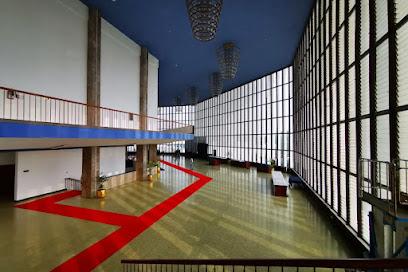
Diyatha Uyana
Explore Diyatha Uyana, a picturesque park in Sri Jayawardenepura Kotte, offering diverse activities, stunning landscapes, and a serene escape into nature.
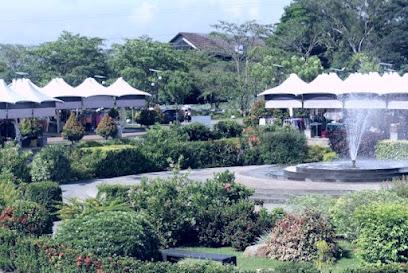
Kelaniya Raja Maha Viharaya
Explore the sacred beauty and rich history of Kelaniya Raja Maha Viharaya, a must-visit Buddhist temple in Peliyagoda, Sri Lanka.

Galle Face Green
Explore Galle Face Green, Colombo's iconic coastal park, where lush greenery meets stunning ocean views and vibrant local culture.
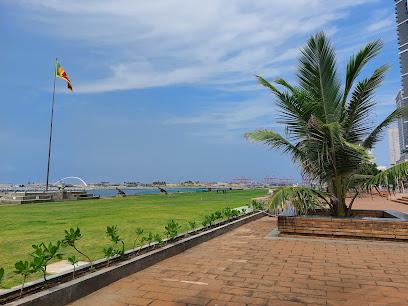
Floating Market - Pettah
Discover the Floating Market in Pettah, a unique shopping destination where vibrant culture meets local flavors in the heart of Colombo.
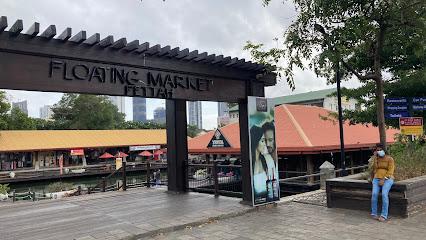
Dehiwala Zoological Gardens
Discover the diverse wildlife and enchanting beauty of Dehiwala Zoological Gardens, a premier attraction for nature lovers in Sri Lanka.
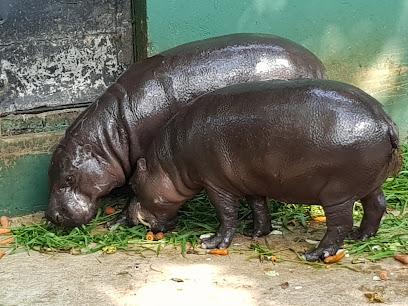
Viharamahadevi Park
Explore the lush greenery and cultural heritage of Viharamahadevi Park, Colombo's largest park, a perfect escape for nature lovers and families alike.
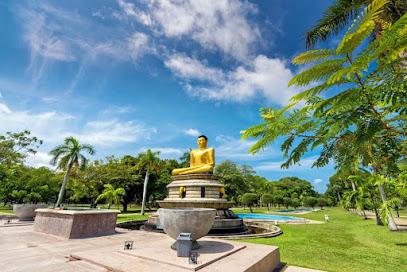
Independence Square
Explore Independence Square in Colombo, a historical landmark celebrating Sri Lanka's independence with stunning architecture and lush gardens.

Bellanwila Rajamaha Viharaya
Experience the spiritual serenity and historical beauty of Bellanwila Rajamaha Viharaya, a must-visit Buddhist temple in Boralesgamuwa, Sri Lanka.
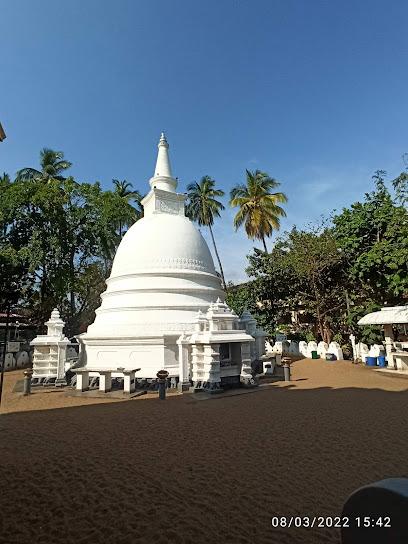
Nelum Pokuna Theatre
Experience the art and culture of Sri Lanka at Nelum Pokuna Theatre, Colombo's iconic performing arts venue showcasing diverse performances.
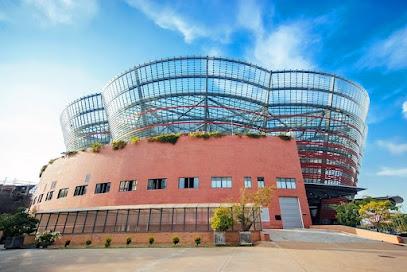
Colombo Lotus Tower
Discover the breathtaking views and cultural essence of Colombo at the iconic Lotus Tower, Sri Lanka's tallest structure.

Excel World Entertainment Park
Discover endless fun and excitement at Excel World Entertainment Park in Colombo, where thrilling attractions await for all ages.
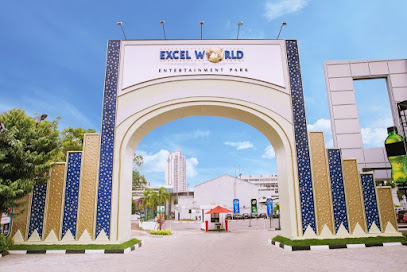
Seethawaka Wet Zone Botanical Gardens
Explore the vibrant flora of Seethawaka Wet Zone Botanical Gardens, a serene escape showcasing the natural beauty of Sri Lanka's wet zone.
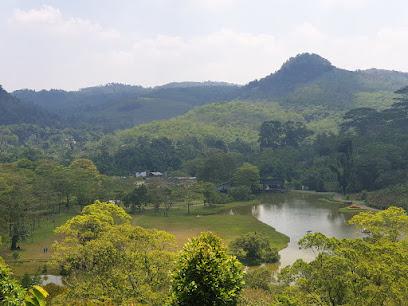
Beddagana Wetland Park
Discover the tranquil beauty of Beddagana Wetland Park, a must-visit ecological haven in Sri Jayawardenepura Kotte, perfect for nature lovers and birdwatchers.
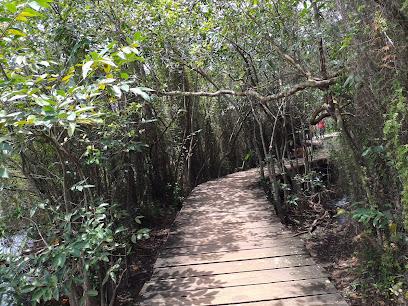
Kalutara Bodhiya
Experience the serenity of Kalutara Bodhiya, a sacred Buddhist temple and a significant cultural landmark in Sri Lanka, rich in history and spiritual significance.
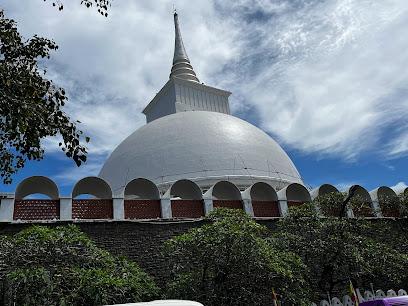
Essential places to dine
Upali's by Nawaloka
Savor authentic Sri Lankan cuisine at Upali's by Nawaloka - a culinary haven in Colombo with warm hospitality.
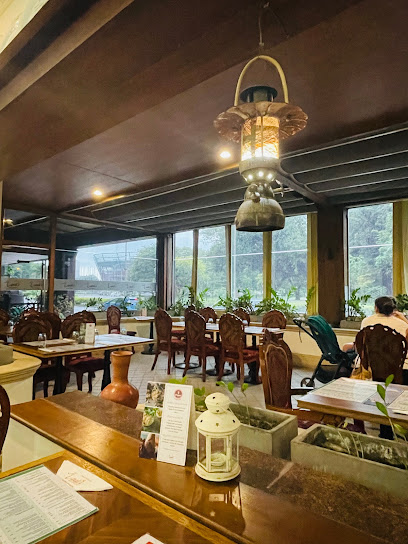
Ministry of Crab
Experience exquisite seafood at Ministry of Crab in Colombo - where tradition meets culinary excellence.
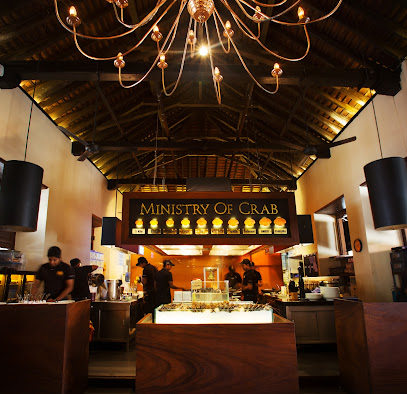
Graze Kitchen
Experience the ultimate buffet at Graze Kitchen in Colombo – where local flavors meet global cuisine in an elegant setting.
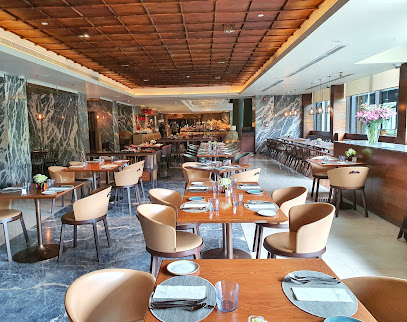
Café on the 5th
Discover authentic Sri Lankan cuisine and cozy vibes at Café on the 5th in Colombo – your go-to spot for delightful meals and relaxation.
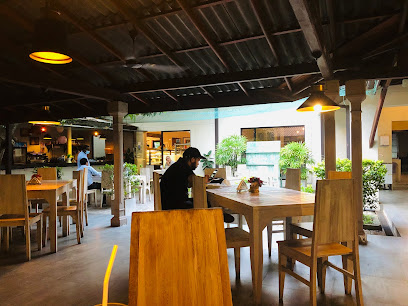
Light House Galley
Experience the flavors of Sri Lanka at Light House Galley – where tradition meets modern culinary excellence.
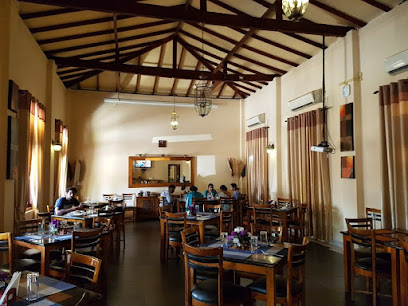
The Barnesbury
Discover the exquisite flavors of Sri Lankan cuisine blended with international delights at The Barnesbury in Colombo's charming Cinnamon Gardens.
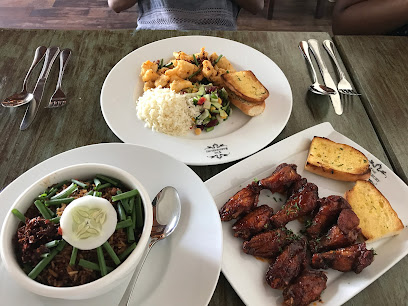
The Sizzle Colombo
Experience the unique flavors of Sri Lankan cuisine at The Sizzle Colombo - where every meal is served with a theatrical twist.
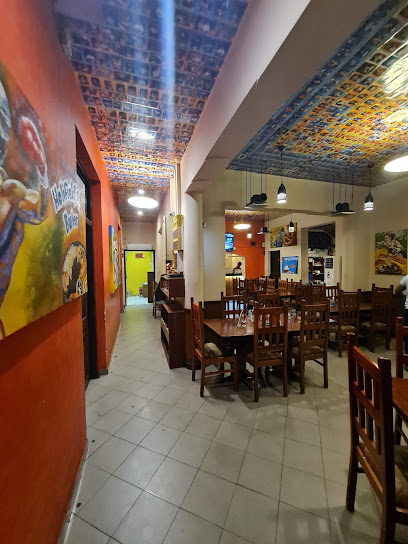
Indian Summer Restaurant
Discover authentic Indian cuisine at Indian Summer Restaurant in Colombo - where tradition meets modern fine dining.
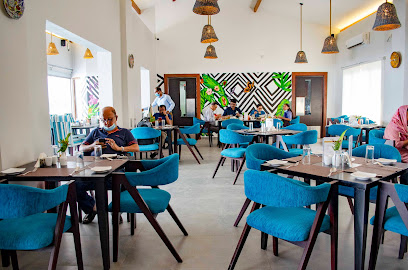
The Gallery Café
Discover The Gallery Café in Colombo – where culinary art meets Sri Lankan hospitality amidst vibrant surroundings.
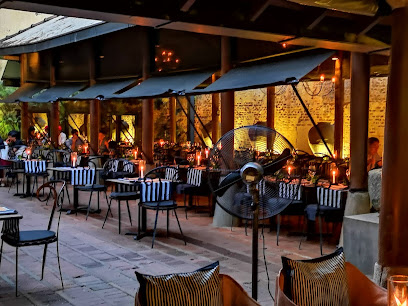
The Mango Tree
Discover the authentic taste of India at The Mango Tree in Colombo—where vegetarian delights meet rich cultural flavors.
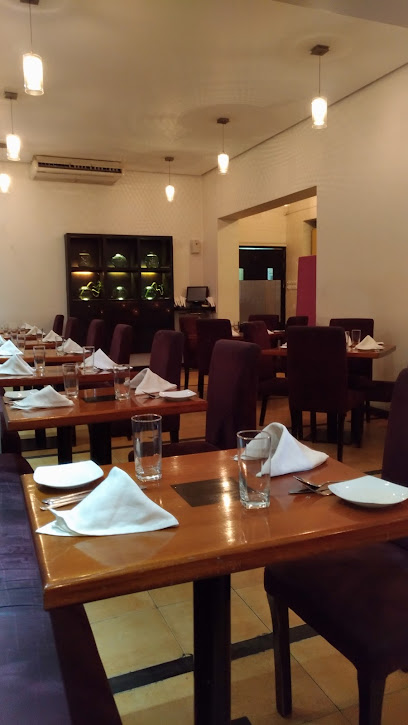
The Bavarian German Restaurant and pub
Discover authentic Bavarian flavors at The Bavarian German Restaurant in Colombo - a must-visit for food lovers seeking European culinary delights.
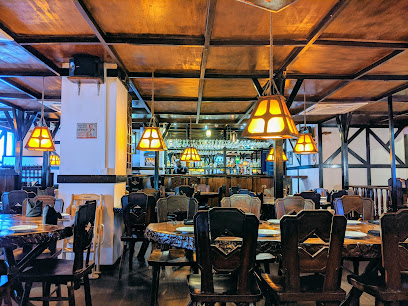
The Lagoon.
Discover a seafood lover's paradise at The Lagoon in Colombo – where fresh flavors meet elegant dining.
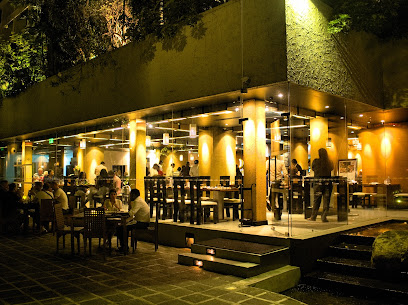
The Bayleaf
Discover The Bayleaf in Colombo - where authentic Italian flavors meet vibrant dining experiences in an elegant setting.
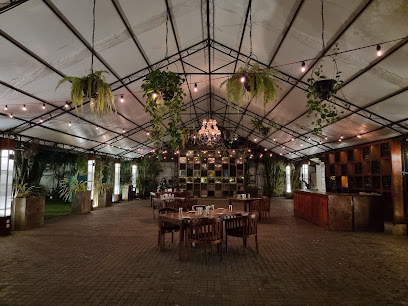
Isso - Prawn Crazy
Experience the ultimate seafood indulgence at Isso - Prawn Crazy in Colombo, where every dish is a celebration of flavor and freshness.
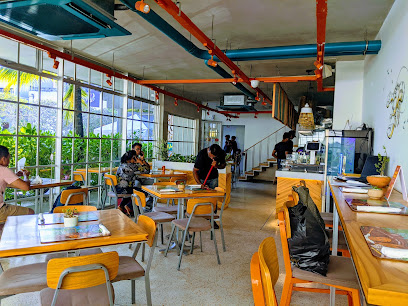
Culture Colombo
Experience authentic Sri Lankan flavors at Culture Colombo – a must-visit restaurant for tourists exploring Colombo's vibrant food scene.
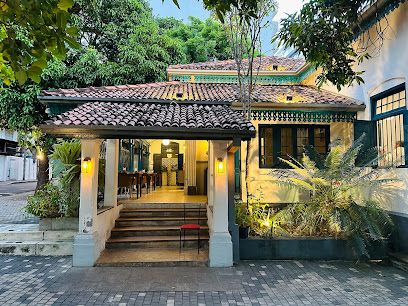
Markets, malls and hidden boutiques
One Galle Face Mall
Discover the ultimate shopping experience at One Galle Face Mall, Colombo's top destination for luxury shopping, diverse dining, and entertainment.
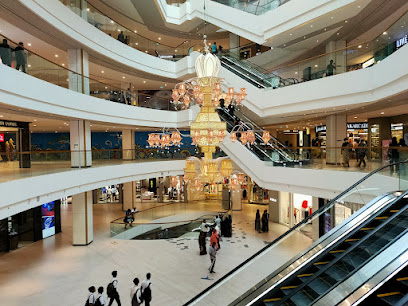
Majestic City Bambalapitiya
Experience the best of shopping, dining, and entertainment at Majestic City Bambalapitiya in Colombo, a hub of modern Sri Lankan culture.
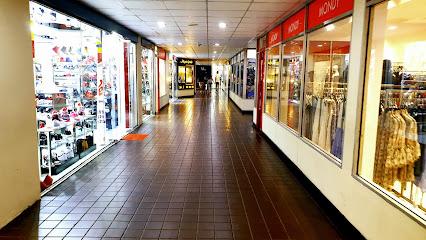
House of Fashions
Explore the vibrant House of Fashions in Colombo, your ultimate shopping destination for diverse clothing options and local styles.
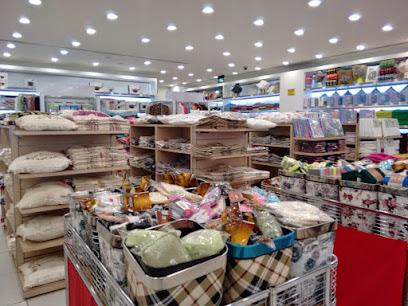
Arcade Independence Square
Discover Arcade Independence Square: Colombo's vibrant shopping and dining destination blending modernity with Sri Lankan heritage.
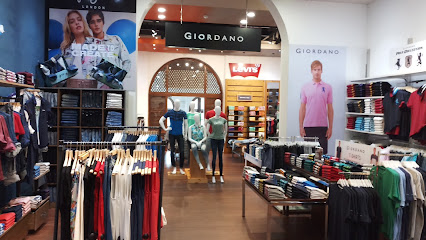
Crescat Boulevard
Discover Crescat Boulevard, Colombo's premier shopping destination with flagship stores, local boutiques, and a food court offering diverse culinary delights.
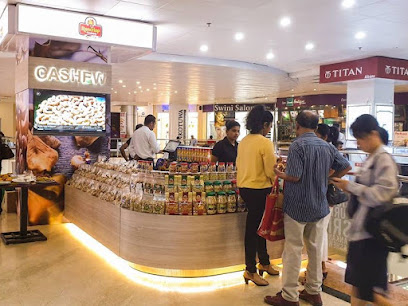
Cool Planet
Discover the best of Colombo's fashion at Cool Planet, a vibrant clothing store and outlet mall with something for everyone.
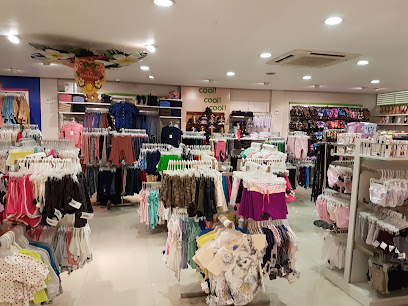
Barefoot
Discover the essence of Sri Lankan craftsmanship at Barefoot, Colombo's vibrant craft store featuring unique textiles and handmade treasures.
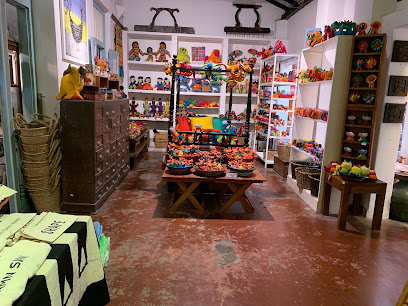
Colombo City Centre Mall and Residences
Experience the ultimate shopping and entertainment destination at Colombo City Centre Mall, your gateway to the vibrant heart of Colombo.
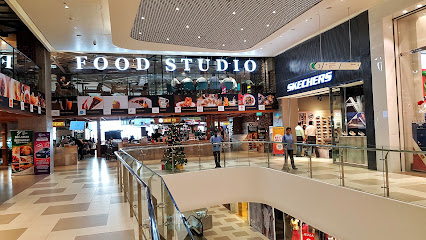
Cotton Collection
Explore Cotton Collection in Colombo for a unique blend of contemporary and traditional Sri Lankan fashion, perfect for stylish souvenirs.
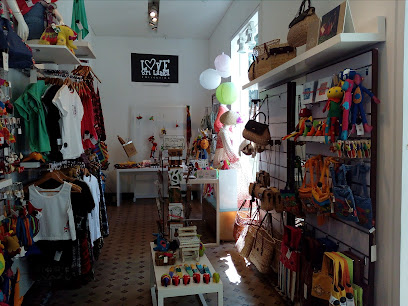
The Fashion Store
Explore the vibrant fashion scene at The Fashion Store in Colombo, featuring a diverse range of stylish apparel for every taste and occasion.
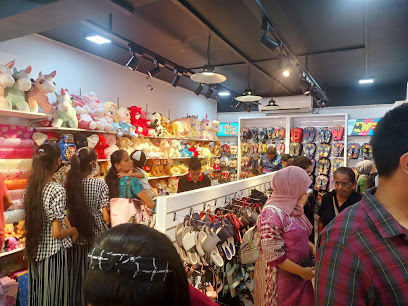
Lakpahana
Explore Lakpahana, Colombo's premier gift shop, offering authentic Sri Lankan handicrafts, textiles, and art, perfect for unique souvenirs.
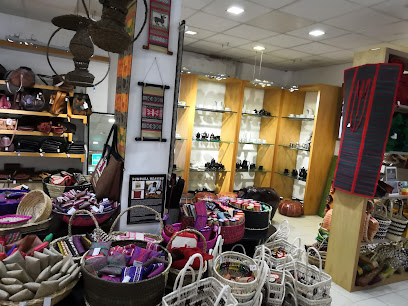
Lak Medura
Explore the vibrant world of Sri Lankan crafts at Lak Medura, a premier gift shop in Colombo offering unique, handcrafted treasures.
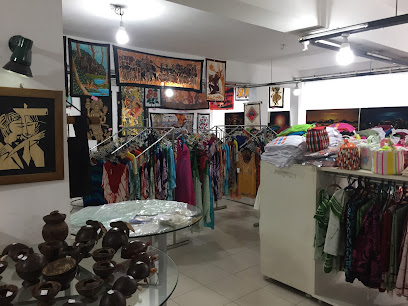
The House of Gifts - Flagship Store
Explore The House of Gifts in Colombo for unique souvenirs, local crafts, and home goods that embody the spirit of Sri Lanka.
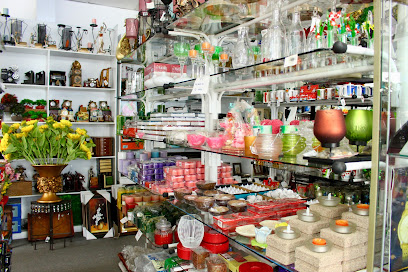
Urban Island
Discover unique fashion at Urban Island, Colombo's premier clothing store showcasing the latest trends and local craftsmanship.
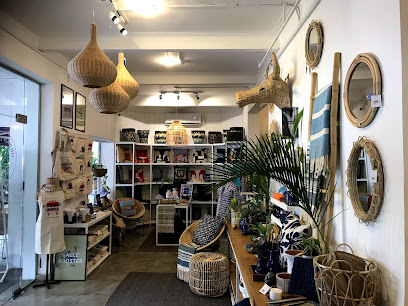
1 Tori House - Unique Home Decor & Gifts
Explore 1 Tori House in Colombo for unique home decor and gifts that celebrate Sri Lankan craftsmanship and culture.
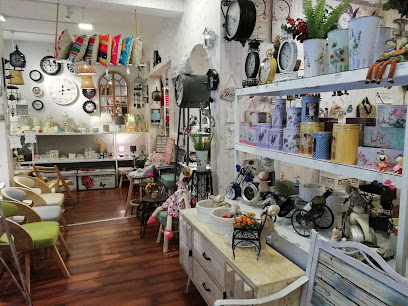
Essential bars & hidden hideouts
Cheers Pub
Experience the vibrant nightlife of Colombo at Cheers Pub, where great food, refreshing drinks, and lively entertainment come together for an unforgettable evening.
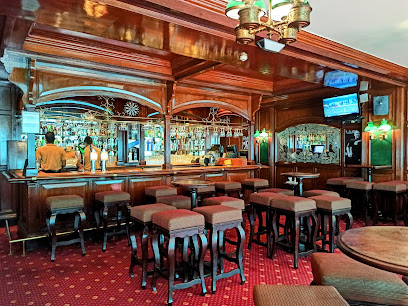
Honey Beach Club
Experience the perfect blend of luxury, relaxation, and vibrant nightlife at Honey Beach Club in Colombo's Kingsbury Hotel.
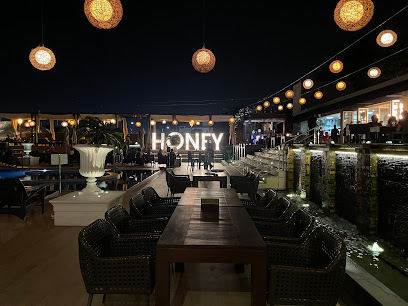
Playtrix Sports Bar and Cafe
Experience the thrill of sports and vibrant nightlife at Playtrix Sports Bar and Cafe, Colombo's top destination for entertainment and culinary delights.
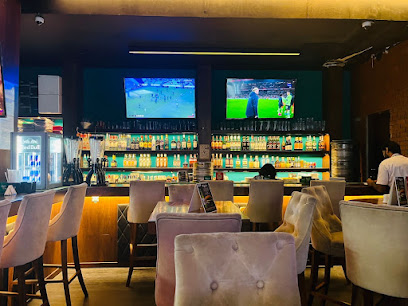
ON14 Rooftop Lounge & Bar
Experience breathtaking views and delectable cuisine at ON14 Rooftop Lounge & Bar in Colombo, a perfect blend of luxury and ambiance.
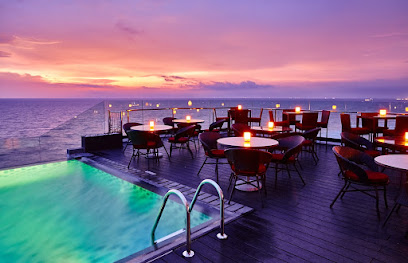
In...on the Green
Discover the vibrant atmosphere and exquisite flavors at In...on the Green, Colombo's premier bar and restaurant with live music.
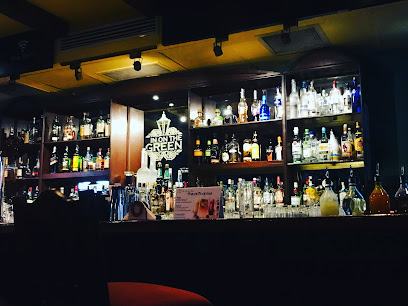
Irish Bar & Grill
Experience the charm of Irish cuisine at The Irish Bar & Grill in Colombo, where every meal is a celebration of flavor and friendship.
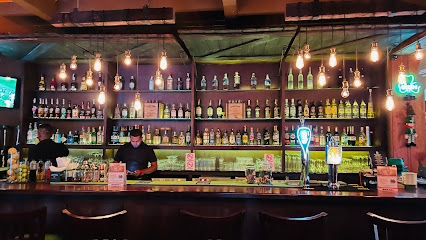
The REPUBLK
Experience the vibrant nightlife at The REPUBLK, where eclectic flavors meet a lively atmosphere in the heart of Colombo.
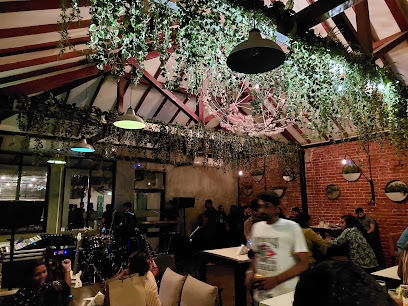
Dutch Pub Colombo
Discover the vibrant atmosphere of Dutch Pub Colombo, where local flavors meet international brews in a cozy setting perfect for relaxation and entertainment.
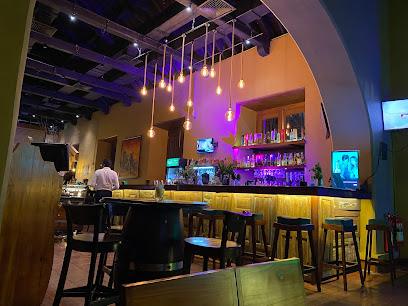
KAVA Island Bar
Experience the vibrant nightlife and delectable grill offerings at KAVA Island Bar in Colombo, where every night is a celebration of flavor and fun.
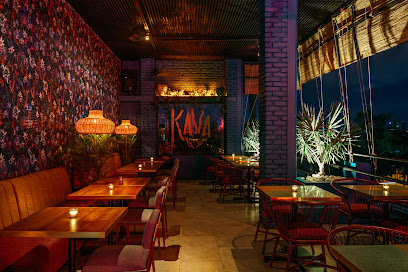
The Love Bar at Flamingo House
Discover the vibrant nightlife at The Love Bar in Colombo, where cocktails and dancing create the perfect evening escape.
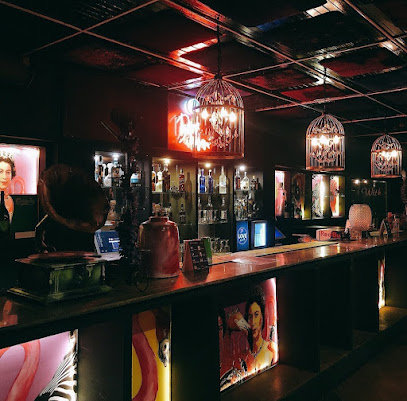
Vistas Bar
Experience the ultimate cocktail indulgence at Vistas Bar, where stunning views meet exquisite flavors in the heart of Colombo.
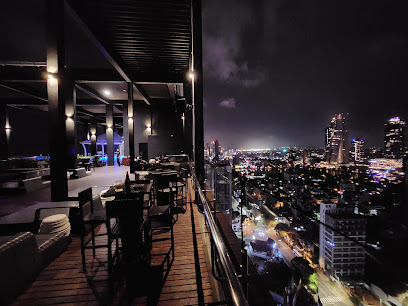
The Breeze Bar
Experience the perfect blend of relaxation and vibrant nightlife at The Breeze Bar in Colombo, where exquisite cuisine meets stunning ocean views.
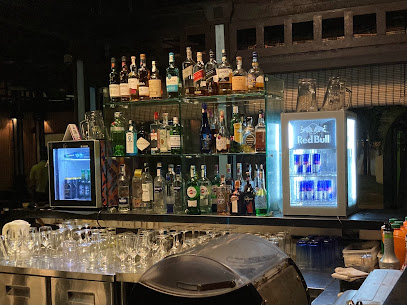
Curve Bar
Discover Colombo's vibrant nightlife at Curve Bar, a stylish venue known for its exquisite cocktails and lively ambiance, perfect for a memorable night out.
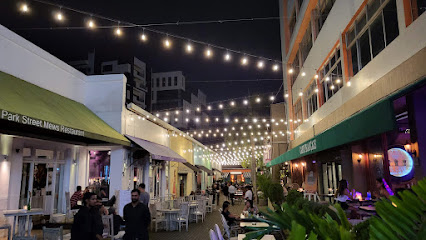
British Pub at One Galle Face
Discover the vibrant atmosphere of British Pub at One Galle Face, Colombo, where traditional flavors meet local charm.
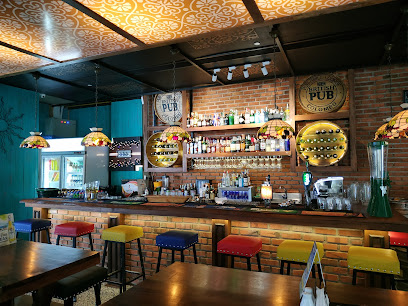
Local Phrases
-
- Helloහිතනවා
[hithanava] - Goodbyeආයුබෝවන්
[ayubovan] - Yesඔව්
[ow] - Noනෑ
[nae] - Please/You're welcomeකරනවා
[karanaava] - Thank youස්තූපනවා
[sthupanava] - Excuse me/Sorryකරුණාකොටුවා
[karunakotuva] - How are you?ඔයා කොහෙද?
[oyā koheda?] - Fine. And you?හරි. ඔයා?
[hari. oyā?] - Do you speak English?ඔයා ඉංග්රීසි කතා කරනවාද?
[oyā ingrisi kathā karanava da?] - I don't understandමම දත්ත පිළිගන්නවාද?
[mama dattha piligananava da?]
- Helloහිතනවා
-
- I'd like to see the menu, pleaseකරුණාකොට මෙනුස් බලනවා
[karunakotuva menūs balanava] - I don't eat meatමම මස් කම් කරාදැයි නෑ
[mama mas kam karayadi nae] - Cheers!සුමටුවා!
[sumatūva] - I would like to pay, pleaseකරුණාකොට ගෙවාගනවා
[karunakotuva gewāganava]
- I'd like to see the menu, pleaseකරුණාකොට මෙනුස් බලනවා
-
- Help!උකුල්ලා!
[ukullā!] - Go away!යන්නාකොටුවා!
[yannakotuva!] - Call the Police!පොලිස් අපෙන්න
[polis apennā] - Call a doctor!වෛර අපෙන්න
[vaira apennā] - I'm lostමම නැතිවිලා
[mama nāthivila] - I'm illමම අස්වැවීම්
[mama aswawīm]
- Help!උකුල්ලා!
-
- I'd like to buy...මම ... මෙනුස් මිලදී ගන්නවා
[mama ... menūs miladī gananava] - I'm just lookingමම බලනවා
[mama balanava] - How much is it?එයා කොහෙද?
[eya koheda?] - That's too expensiveඑයා ශීත්වාද
[eya shītwada] - Can you lower the price?ගමුදීගන්නවාද?
[gamudīganavada?]
- I'd like to buy...මම ... මෙනුස් මිලදී ගන්නවා
-
- What time is it?යුද්දේ කොහෙද?
[yuddē koheda?] - It's one o'clockඑකට
[ekata] - Half past (10)දහයට
[dahayata] - Morningඋදේ
[udē] - Afternoonපෙ.ව.
[pewa] - Eveningස.ව.
[sawa] - Yesterdayඊයේ
[iyē] - Todayඅද
[ada] - Tomorrowහෙට
[heta] - 1එක
[eka] - 2දෙක
[deka] - 3තුන
[thuna] - 4හතර
[hathara] - 5පහ
[paha] - 6හය
[haya] - 7හත
[hatha] - 8අට
[ata] - 9නත
[nata] - 10දහය
[dahaya]
- What time is it?යුද්දේ කොහෙද?
-
- Where's a/the...?... කොටින්නේ කොහෙද?
[... kotinnē koheda?] - What's the address?ලිපිනය කොහෙද?
[lipinaya koheda?] - Can you show me (on the map)?මම අපිටින්නේ කොහෙද?
[mama apitininnē koheda?] - When's the next (bus)?ඊළඟ ... කොටින්නේ කොහෙද?
[ēlagata ... kotinnē koheda?] - A ticket (to ....)ප්රාච්චිතය (... වෙත)
[prācchithaya (... wetha)]
- Where's a/the...?... කොටින්නේ කොහෙද?
History of Colombo
-
Colombo's history stretches back over 2,000 years with evidence of its importance as a port city. Ancient traders from Rome, Arabia, and China frequented the city due to its strategic location along the East-West sea trade routes.
-
In 1505, the Portuguese arrived in Colombo, marking the beginning of European colonial influence. They established a fort and began to exert control over the lucrative spice trade, particularly focusing on cinnamon, which was abundant in the region.
-
The Dutch East India Company took control of Colombo in 1656, expelling the Portuguese. They expanded the fort and enhanced the city's infrastructure, leaving behind a legacy of Dutch architecture that can still be seen in parts of the city today.
-
In 1796, the British captured Colombo from the Dutch. They developed it into a major administrative center and port. The British introduced modern educational institutions and transportation networks, significantly shaping the city's development.
-
Sri Lanka gained independence from Britain in 1948, and Colombo was established as the capital of the new nation. The city continued to grow and modernize, balancing its colonial heritage with contemporary developments.
-
The late 20th century saw Colombo at the heart of the ethnic conflict between the Sinhalese majority and Tamil minority. The city experienced significant turmoil during the Sri Lankan Civil War, which lasted from 1983 to 2009.
-
Today, Colombo is a bustling metropolis that blends ancient traditions with modernity. It is a melting pot of cultures, ethnicities, and religions, offering a rich tapestry of experiences for visitors. The city's vibrant markets, colonial buildings, and contemporary skyscrapers stand as a testament to its diverse history.
Colombo Essentials
-
Colombo is served by Bandaranaike International Airport (CMB), located approximately 35 kilometers north of the city center. The airport is well-connected with direct flights from major cities across the globe. From the airport, you can take a taxi, airport shuttle, or a bus to reach the city. The airport express train is another convenient option, offering a quick and scenic route to Colombo Fort Railway Station.
-
Colombo offers various transportation options, including buses, tuk-tuks, and taxis. The city has an extensive bus network with frequent services connecting different parts of the city. Tuk-tuks are a popular choice for short trips and can be hailed from almost anywhere. For longer journeys, taxis are a more comfortable option. Ride-hailing services like Uber and PickMe are also widely available. The local train service offers a unique experience for exploring the coastal areas and nearby towns.
-
The official currency in Sri Lanka is the Sri Lankan Rupee (LKR). Credit and debit cards are widely accepted in hotels, restaurants, and larger shops. However, it is advisable to carry some cash, especially when visiting local markets and smaller establishments. ATMs are available throughout Colombo, and currency exchange services can be found at the airport, banks, and major hotels.
-
Colombo is generally safe for tourists, but like any major city, it is important to stay vigilant. Avoid walking alone at night in secluded areas and be cautious with your belongings in crowded places. Areas like Pettah Market and certain parts of Fort can be busy and chaotic, so keep an eye on your valuables. While violent crime is rare, petty theft and scams can occur, so always be cautious.
-
In case of emergency, dial 119 for police assistance and 110 for medical emergencies. Colombo has several hospitals and clinics that offer quality medical care. It is advisable to have travel insurance that covers medical emergencies. For minor health issues, pharmacies are readily available throughout the city. Keep a list of emergency contacts and the address of your embassy or consulate for quick access.
-
Fashion: Do dress modestly, especially when visiting religious sites. Avoid wearing revealing clothing. Religion: Do respect local customs and traditions. Remove your shoes and cover your head when entering temples. Public Transport: Do be respectful and give up your seat to elderly or disabled passengers. Don't eat or drink on public transport. Greetings: Do greet people with a smile or a slight bow. Handshakes are common, but be mindful of cultural sensitivities. Eating & Drinking: Do try local cuisine and accept food offerings graciously. Don't refuse hospitality, as it is considered impolite.
-
To experience Colombo like a local, visit the bustling Pettah Market for a taste of local life and to shop for fresh produce, spices, and textiles. Take a stroll along Galle Face Green, a popular spot for families and street food vendors. Engage with locals, as they are often friendly and eager to share their culture. Don't miss the opportunity to visit local temples and historic sites such as Gangaramaya Temple and the Colombo National Museum.
Trending Landmark in Colombo
-
Floating Market - Pettah
-
Pettah Floating Market
-
Galle Face Green
-
Viharamahadevi Park
-
Gangaramaya Temple
-
Independence Square
-
Dutch Hospital - Shopping Precinct
-
Colombo Lotus Tower
-
Colombo National Museum
-
Jami Ul-Alfar Mosque
-
Mount Lavinia Beach
-
Crow Island Beach Park
-
Gangarama Sima Malaka
-
Attidiya Bird Sanctuary
-
Colombo Galbokka Lighthouse
Nearby Cities to Colombo
-
Things To Do in Negombo
-
Things To Do in Bentota
-
Things To Do in Hikkaduwa
-
Things To Do in Kandy
-
Things To Do in Nuwara Eliya
-
Things To Do in Galle
-
Things To Do in Unawatuna
-
Things To Do in Mirissa
-
Things To Do in Ella
-
Things To Do in Matara
-
Things To Do in Sigiriya
-
Things To Do in Anuradhapura
-
Things To Do in Polonnaruwa
-
Things To Do in Trincomalee
-
Things To Do in Kanyakumari


















